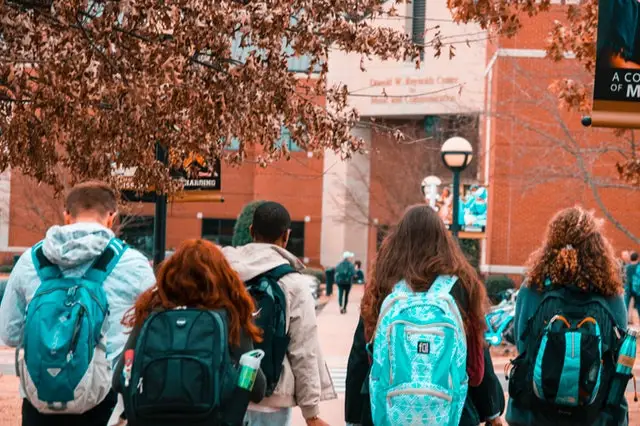How To Pay Off Student Loans
Learn top ways to pay off your student loan with repayment options, tips, payment, and its alternatives also, learn about cancellation, forgiveness and the impact of not paying.
Updated by Gowtham Ramesh on 6th February 2020
If you have graduated from college then congratulations to you but if the degree you hold is not free and you are in debt, then you need to find out a way to pay it back.
The great news is that you have many various repayment plans to get from. Where some are dependent on the percentage of your optional income where it lasts for a period of twenty to twenty-five years it might also include loan forgiveness if your payments are all in time. It even starts with lower payments where it can increase as time as does your income too.
Although of the plans available to make a decision but try to know who is your loan holder and where to make the payments and how much are you going to pay. You might have doubts about the discharge of your loans or the results of missed payments. Try to find out the answers to the questions you have before making it into default.
Table of contents
When to start repaying
There is a grace period of six-months where you don't have to make payments for a period of 6 months it also applies to drop out (or) drop below half-time status too. The grace period serves as a period that is provided to search for a job and start making your income before you get with the dues.
The loans which qualify for the six-month grace period are
-
Direct Subsidized/Unsubsidized Loans
-
Subsidized/Unsubsidized Federal Stafford Loans
In the case of PLUS loans, you don't have a grace period where you need to start making the repaying as soon as you are fully distributed. The grace period on private loans is based on the lender's decision and if you are in need of one then you can contact them. Where the duration will be short and confirm it once from the lender to make sure of the duration allocated.
You might also consider looking at the consolidation of your loans while they are in the grace period. It will gather all the federal loans into a single one with one payment. The consolidation can be done through the Department of Education or your loan servicer or consolidating with a private lender. Private Lenders offer a lower rate of interest for people who have a high credit score.
Best tips for loan payments
-
Make the grace period to understand your loan repayment choices
-
Make a clear bridge around your student loans payments using budgeting
-
Give importance towards your Student Loan Payments
-
Make a proper communication with the loan servicer of yours
-
Make an auto-debit program to get a reduction and to avoid late fees
-
Don't leave your loans to go into default where it might be hard to bring it back
-
Keep a track of your data when the loans get over and pay on time and make a goal on it and achieve
What's the amount I need to pay?
The monthly minimum payment will be determined on the type of loan, the amount which you owe and the duration of your repayment plan with the rate of interest. In this repayment plan, you will be getting 10 to 25 years to complete your federal loan totally. The shorter the duration on the higher the size of the loan it will end in higher payments.
Standard repayment is a 10-year plan and most popular one with 11.37 million peoples have been listed into it for the year 2017 well, it might not be a good one for you. This is a default plan you get enrolled under the standard repayment plan until you go for a different one.

Source - pexels.com
The fixed monthly payments will be for 10 years well its a good plan if you can able to pay the monthly payments. If you are not income to make these payments and you can enroll in one of the income-driven repayment plans.
For the extra payments that you make with the minimum monthly payments. It has no fines for earlier made repayments with this method can help you save the amount of interest.
How to make payments?
If all the bills are at due you need to send the monthly payments to the companies that have your loans. Where if you don't know where to send it to then check with the school's financial aid office. They can able to say who is your loan servicers and you can get in contact with them quickly.
Be cautious that the payments are due even though you don't get any bills. If you get moved after the graduations then let your loan servicer know your address so you can get your bills there and stay on track of your payments.
If you are looking to change your loans to make it easier for the payments then you might be in due before you get your paycheck of each month. Better get in touch with the servicer of your loan so you switch your payments dates directly to paid after.
Alternative options
If your monthly need payment is higher than your income allows to pay, then you might be eligible for income-driven repayment programs such as income-based repayment plan, income-contingent repayment plan, pay as you earn or revised pay as you earn.
Where these repayment plans are dependent on the income than the amount you owe, by which making lower payments conditions for them. These are taken into accounts of your income, family size and the place you live. If you are paying around 10 % to 20% then you will be getting plans for 20 to 25 years based on the plan you have.
If you are under financial difficulty for a short term like jobs, medical leaves and suspend of payments, despite it the loans of yours will be accrued interest where you will be owing more in terms of payments. You can also extend your time of repayment with the help of the repayment plan.
Outcomes of not making payments
Generally, the student loan doesn't go away and it has its no statute of limitation and the student loans will go with your life till you pay it off. If you make a delayed payment on the federal loan then you are liable for a late fee of 6% to be added into the payments.
Defaulting of federal student loans will end in strict penalties and you will be delinquent when you have not made any payments in the past 90 days. If you haven't made any payments in 270 days then it will go into default where you need to face a lot of consequences.
The government can garnish up to 15% of your wages and social security benefits and offset income refunds. They can also deduct 25% of their payment for collection fees, making it costly. Missed payments will be on the credit report where it will hurt the score of yours.
Cancellation
The loans can be canceled on the basis of these conditions such as
-
When your college gets closed while you are studying and then within 90 days after you withdrew.
-
The school owed you or the lender of your refunds after you withdrew.
-
The loan was made based on identity theft.
-
When the student who borrowed has died.
-
When you are totally and permanently disabled.
Forgiveness
Federal loans can be eligible for forgiveness programs based on the profession or job you do. If you are having an IBR plan then the balance 10 years will be forgiven f you are spending it on the public service sector such as military, police, and education.
You can get up to $17,500 in loan forgiveness. If you are a teacher for 5 continuous years for the low-income area. If you are facing difficulties with student loan payments then you can get help as soon as possible to avoid payments or have then get into defaulted
Top ways for paying off your student loans
Well, is this is the year that you will be paying off your student loans. Then if you are looking for answers on how to pay off your student loans faster and quicker well we have some strategies to lower the debt and get a better life.
Pay extra than the normal payments
Paying extra then your regular minimum payments might be a hard choice. That you don't want to do well, it can help you to pay faster your debt and there is no penalty of prepayments where you can pay it off anytime you want.
The interest is always increasing on the principle of yours, so paying more amount it can help to reduce the cost of your student loans.
Example:-
If you are having a debt of $50,000 of student loans with an 8% interest rate for a 10-year standard repayment plan. If you are paying $100 for each month where it can lead you to save $4,923 in interest and will help you pay off your loans earlier of 1.99 years.
Make more student loan payments
The great strategies are to off your student loan faster and make it more payments. As there are no prepayments punishments or any extra payments of any amount.
First, you need to pay at least a minimum of 12 months to be considered for extra payments every three months for a total of 16 payments for each year. These extra student loan payments can be of any amount which you can afford.

Source - pexels.com
Try to contact your lender in a written form explaining that you will be making extra payments multiple times per year. State that the extra payments should need to apply to the principal alone not for the next month.
If you fail to state that the lender will keep the payment and apply it to the next month.
Lump-sum payment
The time when you get a bonus, tax refund or any cash resource then try to not spend it on the vacation or any other thing. Make a calculation of how much money you can save on time and make a lump sum payment on the student loan.
Example:-
-
You have a debt of $50,000 in student loans on an 8% interest rate under a standard repayment plan period of 10 years term.
-
If you are paying $500 payment then you will be saving $515 and pay off it before a month earlier.
-
If you are paying $1,000 payment then you will be saving $1,019 and you will be paying off 3 months earlier.
-
If you are paying $5,000 payment then you will be saving $4,675 and you will be paying off 1 year and 4months earlier.
-
If you are paying $10,000 payment then you will be saving $8,423 and you will be paying off 2 years and 6 months earlier.
Look for student loan forgiveness
Apply for Public Service Loan Forgiveness (PSLF) where it is for borrowers with federal student loan where you need to be enrolled into a federal repayment plan who need to be employed full time in a qualifying state under a federal or local public service job Or under the 501(c)(3) non-profit jobs who need to make 120 eligible on-time qualifying payments.
Teachers student loan forgiveness is for teachers who serve full time for 5 continuous years of experience in an elementary or secondary school education service agency. You can also get listed into income-driven repayment plans and get student loan forgiveness for your federal student loans also this type of loan forgiveness might result in paying of taxes for the forgiven amount.
Interest Deduction on student loan
The interest on the student loan can be deducted on federal income taxes. The deduction of interest rate can be done up to $2,500 per year. The tax deduction can able to lower the total income tax bill and deduction can be taken on based on the standard deduction or into the federal income tax return. The focus on the amount of interest is needed as it needs to be paid its not your student loan payments
Go into shorter student loan repayment programs
The shorter the duration term of your loan the faster you can pay it off where it should be 10 years or lesser than it. The longer-term is those when you have around 10 years plus where it takes more time and the interest rate will also be more.
Income-driven repayment plans might have lower monthly payments yet, interest still it collects on the loan balance. If you are not able to get student loan forgiveness then you need to repay your student loan before you get any forgiveness then you might look into it.
Refinance of your student loan
Refinancing your student loan might be the safest approach to lower the student loan and your interest rate. Where it gives you to pay off your old student loan with a new one and it comes with a lower interest rate.
These multiple student loan lenders can offer a rate of interest as lower as 2.50% to 3.00% where it is considered the lowest one comparing to federal student loans and in private loan interest rate. Among these student refinancing, you can get either fixed or variable rate and the term of the loans is from 5to 20 years.
To get into it the lenders might judge your credit profile, income, debt to income ratio and other monthly free cash flows in order to give you.
| Minumum Credit Score | Apply in as little as | Variable APR | Fixed APR | ||
|---|---|---|---|---|---|
 | Not Available | 15 minutes or less | 2.95 | 4.74 | View disclosures |
 | 620 | 2 minutes | 5.38%-16.99%1 | 4.43%-16.99%1 | View disclosures |
 | Not Available | 15 minutes | 1.13% - 11.23%¹ (with autopay) | 3.50% - 12.60%¹ (with autopay) | View disclosures |



93.jpg)


28.jpg)
